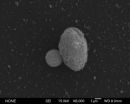(Press-News.org) Small financial incentives, totalling as little as £30, can dramatically increase the likelihood of people who inject drugs completing a course of hepatitis B virus (HBV) vaccination, according to new research published in The Lancet.
Researchers in the UK found that people undergoing treatment for heroin addiction who received a maximum total of £30 supermarket vouchers in equal or graduated instalments in return for full compliance with a regimen of three HBV vaccine injections were at least 12 times as likely to complete the course within 28 days compared to those not receiving a financial incentive (45% for equal payment instalments and 49% for graduated payment instalments vs 9% for no payment incentive).
The study was led by Professor John Strang from the National Addiction Centre at King's College London, UK, working in close collaboration with senior colleagues at Imperial College London and University College London (UCL), in the UK.
"That monetary incentives increase compliance is unremarkable, but the size of the increase we observed was striking"*, says Professor Strang. "Injecting drug users are at high risk of infection and transmission of hepatitis B. This is a potentially life-saving vaccine, and increasing its uptake among this group has important benefits to public health, as well as to the individual."*
HBV affects about 22% of injecting drug users in the UK, and much higher proportions in other countries. Medication can slow the spread of HBV, but there is no completely effective cure. It is estimated that 15-25% of people with untreated chronic HBV die of liver disease [1]. A highly effective vaccine exists, but the rate of vaccination uptake is poor. Financial incentive-based public health strategies for treating addiction have gained popularity in the USA in recent years, but such incentive schemes are less common in the UK.
The new study enrolled 210 people receiving opioid substitution therapy from 12 National Health Service drug treatment services across the UK. Services were randomly assigned to different voucher schedules, so that patients received either HBV vaccination without incentive (treatment as usual), fixed value contingency management (£10 voucher at each of three vaccinations), or escalating value contingency management (£5 voucher at first vaccination visit, £10 voucher at second visit, and £15 voucher at third visit).
The researchers compared the effectiveness of these three approaches in achieving completion of vaccination. In the treatment as usual group, only six (9%) of 67 participants completed all scheduled vaccinations, compared with 35 (45%) of 78 participants in the fixed reward group, and 32 (49%) of 65 participants in the escalating reward group.
Additionally, the authors noted that most participants (at least 80%) receiving financial incentives attended appointments on time, ensuring a more efficient use of resources.
According to Professor Strang, "Our research finds that offering financial incentives improves people's completion of HBV vaccination, and can be achieved in routine clinical practice. However, even with these improvements, only about half the participants completed the vaccination schedule in the contingency management groups: more work is needed to refine the reward scheme to increase further the uptake and completion of vaccination."*
Writing in a linked Comment, A Thomas McLellan, Director of the Treatment Research Institute in Philadelphia, USA, says, "Health care policy makers might be wise to consider traditional market forces when designing and delivering prevention strategies. The findings from Weaver and colleagues' study suggest that contingent financial incentives might be as or more important in the disease prevention marketplace as they are in commercial markets."
INFORMATION:
NOTES TO EDITORS:
The study was funded by the National Institute for Health Research
*Quotes direct from author and cannot be found in text of Article
[1] For more information on Hepatitis B, see: http://www.nhs.uk/Conditions/Hepatitis-B/Pages/Complications.aspx END
The Lancet: Small cash incentives dramatically improve hepatitis B vaccination rates among injecting drug users
2014-04-09
ELSE PRESS RELEASES FROM THIS DATE:
Processing new information during sleep compromises memory
2014-04-09
Washington, DC — New research appearing in the April 9 issue of the Journal of Neuroscience highlights the important role sleep plays in strengthening and maintaining the accuracy of a memory and hints at why the brain shuts out sensory information during periods of deep sleep. The study found that introducing new odor information to an animal while it sleeps compromises its ability to remember the difference between new and previously encountered smells while awake.
During sleep, the brain performs a number of important repair and maintenance duties that are necessary ...
Language structure ... you're born with it
2014-04-09
Humans are unique in their ability to acquire language. But how? A new study published in the Proceeding of the National Academy of Sciences shows that we are in fact born with the basic fundamental knowledge of language, thus shedding light on the age-old linguistic "nature vs. nurture" debate.
THE STUDY
While languages differ from each other in many ways, certain aspects appear to be shared across languages. These aspects might stem from linguistic principles that are active in all human brains. A natural question then arises: are infants born with knowledge of how ...
Lead continues to be a serious threat to California condor populations
2014-04-09
The California condor was one of the first species to be listed under the Endangered Species Preservation Act in 1966 when the population was reduced to a handful of birds. Through a massive collaborative effort that included fieldwork and breeding in zoos, the condor population has grown to more than 400 birds, more than half of which are now free-flying in the wild. Unfortunately, there is overwhelming evidence that lead poisoning from accidental ingestion of spent ammunition is the leading cause of death in the wild population, and this may prevent the establishment ...
Identified a new possible target to combat muscle wasting
2014-04-09
In the study published today in the Journal of Clinical Investigation (JCI), one of the journals with highest impact in experimental medicine, the researchers associate the activity of the DOR protein with muscle atrophy and point to DOR as a plausible target against which to develop a drug to prevent muscle deterioration in certain diseases.
DOR (Diabetes- and Obesity-regulated gene), also known as TP53INP2, is a protein involved in autophagy, a quality control process that ensures cells stay healthy. The researchers have found that increased DOR expression in the muscle ...
UNC researchers show how cancer cells may respond to mechanical force
2014-04-09
April 9, 2014 The push and pull of physical force can cause profound changes in the behavior of a cell. Two studies from researchers working at the UNC Lineberger Comprehensive Cancer Center reveal how cells respond to mechanical manipulation, a key factor in addressing the underlying causes of cancer and other diseases.
The studies, published in Nature Cell Biology and the Journal of Immunology, have their roots in a longtime partnership between the labs of Keith Burridge, PhD, Kenan Professor of Cell Biology and Physiology in the UNC School of Medicine, and Richard ...
Study examines mental health toll exacted on civilians working with military in war zones
2014-04-09
WASHINGTON, DC, April 9, 2014 — The punishing psychological toll endured by military personnel in war zones has been extensively documented for years by researchers, perhaps more than ever in the wake of recent military engagements in Iraq and Afghanistan.
But there has been a troubling dearth of research examining the mental health toll exacted on the large numbers of civilians who work with the military in war zones.
Sociologists Alex Bierman, an assistant professor at the University of Calgary, and Ryan Kelty, an associate professor at Washington College in Maryland, ...
Scientists in Singapore develop novel ultra-fast electrical circuits using light-generated tunneling
2014-04-09
Singapore, 9 April 2014 – Assistant Professor Christian A. Nijhuis of the Department of Chemistry at the National University of Singapore's (NUS) Faculty of Science, in collaboration with researchers from the Agency for Science, Technology and Research (A*STAR), namely Dr Bai Ping of the Institute of High Performance Computing and Dr Michel Bosman of the Institute of Materials Research and Engineering has successfully designed and fabricated electrical circuits that can operate at hundreds of terahertz frequencies, which is tens of thousands times faster than today's state-of-the-art ...
Physical function and sense of autonomy determine life-space mobility in older people
2014-04-09
Physical function and sense of autonomy are independent determinants of life-space mobility in older people. This was found in a study conducted at the Gerontology Research Center of the University of Jyväskylä. In this project, 848 older men and women that lived independently in the Jyväskylä region in Central Finland were interviewed at their own home.
Life-space mobility reflects a person's mobility with or without the use of a vehicle. Life-space mobility reflects an individual's opportunities to participate in the society. An individual's life-space may be restricted ...
Technical tests of biodiversity
2014-04-09
What happens when physicists play (using mathematical instruments) with the genetics of populations? They may discover unexpected connections between migration and biodiversity, for example, as recently done by a group of researchers from the International School for Advanced Studies (SISSA) in Trieste and the Polytechnic University in Turin in a study published in the journal Physical Review Letters.
The effect of migration on biodiversity (intended as the coexistence of different genetic traits) is an open question: does migration increase or decrease the genetic variability ...
Brain size influences development of individual cranial bones
2014-04-09
VIDEO:
This shows skull and skeletal development of a 25-year-old musk shrew embryo.
Click here for more information.
Embryonic development in animals – except mice and rats – remains largely unexplored. For a research project at the University of Zurich, the embryos of 134 species of animal were studied non-invasively for the first time using microcomputer imaging, thus yielding globally unique data. The embryos studied came from museum collections all over the world. The international ...



